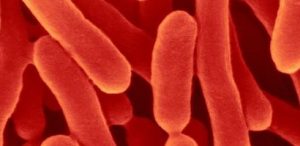Tetanus
Tetanus
This disease is a serious condition results when bacterial toxim enters in the body that affect nervous system causing painful muscle contractions, especially of jaws and neck muscles. This toxin make patients unable to breath and cause life threatening complications. Tetanus is commonly referred as lockjaw.
Symptoms
Patient with tetanus get signs and symptoms usually after few days to several weeks after bacterial invasion through wound. Some symptoms are:
- Trismus i-e spasm and stiffness of jaw muscles
- Neck muscles stiffness
- Swallowing difficulty
- Abdominal muscles stiffness
- Intense painful body spasm that lasts for several minutes
- High grade fever
- Sweating
- Hypertension
- Increase heart rate
Causes
Main cause of tetanus is entrance of toxin from the spores of bacteria, clostridium tetani. This bacterial spores are present in the soil, dusts and animal faeces. After invasion of wound, bacterial growth occur that produces powerful toxin, tetanospasmin. This toxin impairs motor neuons of the body leading to muscle stiffness and spasms.
Complications
Some possible complications of tetanus are:
- Broken bones
- Lung arteries blockage by pulmonary embolism
- Severe tetanus-induced (tetanic) muscle spasms of respiratory muscles leading to death.
Diagnosis
Diagnosis of this condition depends upon detailed medical history and complete general physical examination of the patient.
Treatment
There’s no proper cure of tetanus. However, supportive treatment is given to relieve the symptoms of the patient such as:
- Wound care
- Medications like vaccine, antitoxin, sedatives and antibiotics
- Supportive therapies
Lifestyle and home remedies
- Medical attention to the deep wounds
- Apply direct pressure to control bleeding of wounds
- Keep the wound clean by cleaning it with running water and antiseptic solution
- Cover the wound
- Change the dressing at least once a day
